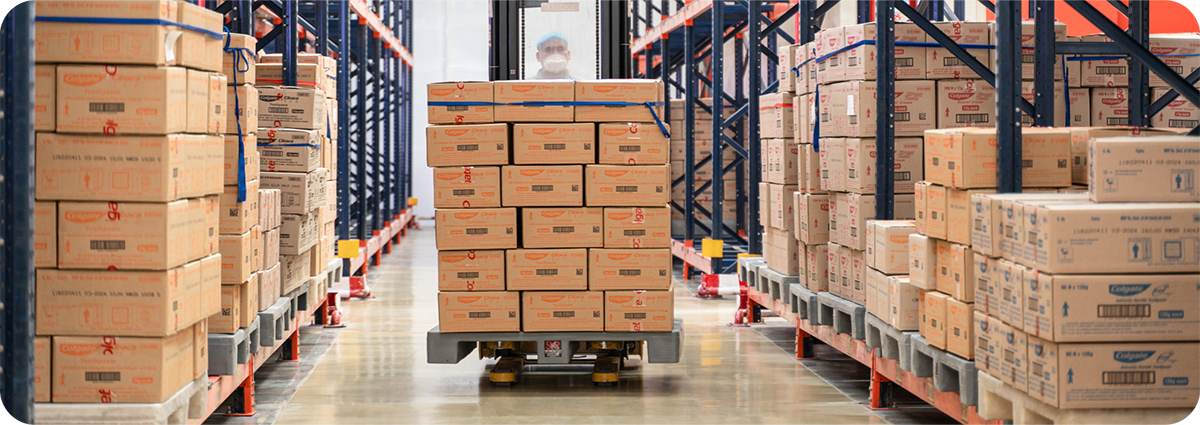Statutory Section
Our supply chain is crucial for ensuring the smiles of our customers and stakeholders. By organizing and optimizing our supply chain with clear approaches and policies, we continuously exceed expectations.


Colgate reaches more homes than any other brand in India and we are committed to going farther while minimizing our environmental footprint. We've set a target to reduce emissions by 20% from our 2020 baseline by 2025. To achieve this goal, we've developed a strategy and implemented various interventions on the ground.
Container Space Utilization
Finished Goods (FGs) are efficiently packed into the containers, ensuring
more throughput per container, thereby reducing environmental impact
and transportation costs while improving overall supply chain efficiency.
Container optimization improved to 94% in FY 2023-24 compared to 93%
in FY 2022-23.

High-Capacity Trucks
Improved logistics efficiency by
maximizing truck capacity
consolidates goods into fewer
trips resulting in lower emissions
and reduced transport costs. We
are one of the first FMCG
companies to pilot and scale 50FT
37T containers.
Impact: 624 trips in FY 2023-24
for high-capacity trucks
compared to 201 in FY 2022-23.
Containerization
Transitioning from open-body to
closed-body trucks offers higher
volume availability, lower cost per
ton, and enhanced safety of goods
during transit. Use of closed body
trucks increased from 58% in FY
2022-23 to 80% in FY 2023-24.
Integrated modes of transport, such as road-rail and road-ocean to optimize the movement of goods across various distances and terrains leading to 85% to 90% fewer emissions compared to road transport. Modal Shift: 85% to 90% lesser emission as compared to road.
3PL Engagement
Engaging with third-party
logistics providers (3PLs) to
explore electric vehicles,
conducting pilot projects, and
organizing sessions to connect
EV OEMs with distributors, thus
driving awareness.
Customer Engagement
It involves various strategies to
interact with and serve customers
effectively.
Direct dispatches from
manufacturing plants to end
warehouses for efficient delivery.
Customer-led backhaul
arrangements, where we
collaborate with customers to
convert customer empty miles to
pick up of goods from our
Warehouse, promoting
sustainability and cost-efficiency.
